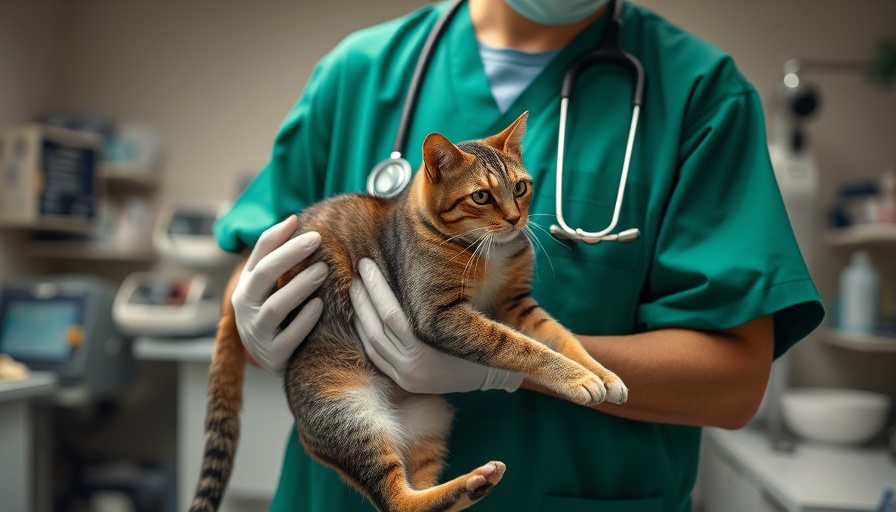
Exploring the New Treatment for Hyperkalemia in Cats
A recent study published in the Journal of the American Veterinary Medical Association highlights the promising potential of inhaled albuterol sulfate for treating elevated potassium levels, or hyperkalemia, in felines. This condition is prevalent in cats, especially those suffering from urinary tract obstructions, where the inability to excrete potassium can lead to critical health challenges.
Understanding Hyperkalemia in Cats
Hyperkalemia poses a significant risk to cats, often manifesting through symptoms such as muscle weakness and lethargy. Furthermore, excessive potassium can lead to serious complications, including cardiac arrhythmias, which can be life-threatening. Effective management of potassium levels is crucial, particularly in veterinary clinical settings where immediate intervention may be necessary during surgical procedures.
The Role of Inhaled Albuterol
Traditionally used in humans, inhaled albuterol acts as a β2-agonist to induce the redistribution of potassium within the body, rapidly lowering potassium levels. In the cited study, administering albuterol through a mask to 20 healthy cats produced a notable decrease in blood potassium concentrations, demonstrating effects observable as quickly as three minutes. Peak efficacy occurred around 30 minutes after administration, with results sustained for up to three hours, marking it as a fast-acting intervention.
Benefits and Implications for Veterinary Practices
This development provides veterinarians with a new tool to not only enhance treatment protocols but also improve client trust and satisfaction. For veterinary clinic owners and managers, integrating inhaled albuterol into their practices can lead to better patient outcomes and potentially increase client retention through optimal service delivery. As the demand for effective treatments grows, adapting innovative solutions like this can set clinics apart in a competitive market.
Looking Ahead: The Future of Veterinary Care
As more studies validate the efficacy of inhaled albuterol, it presents an opportunity for veterinarians to stay at the forefront of treatment methodologies. Embracing such advancements can significantly impact how clinics operate, ensuring that high-quality care is accessible to all feline patients. For veterinary professionals, it’s essential to continue evolving with scientific discoveries that enhance both operational efficiency and patient safety.
Incorporating inhaled albuterol in veterinarians' treatment regimes is just one step forward in ensuring the health and well-being of felines. Veterinary practices should explore training and protocols around this innovative treatment to maximize its benefits.
 Add Row
Add Row  Add
Add 

 Add Row
Add Row  Add Element
Add Element 




Write A Comment